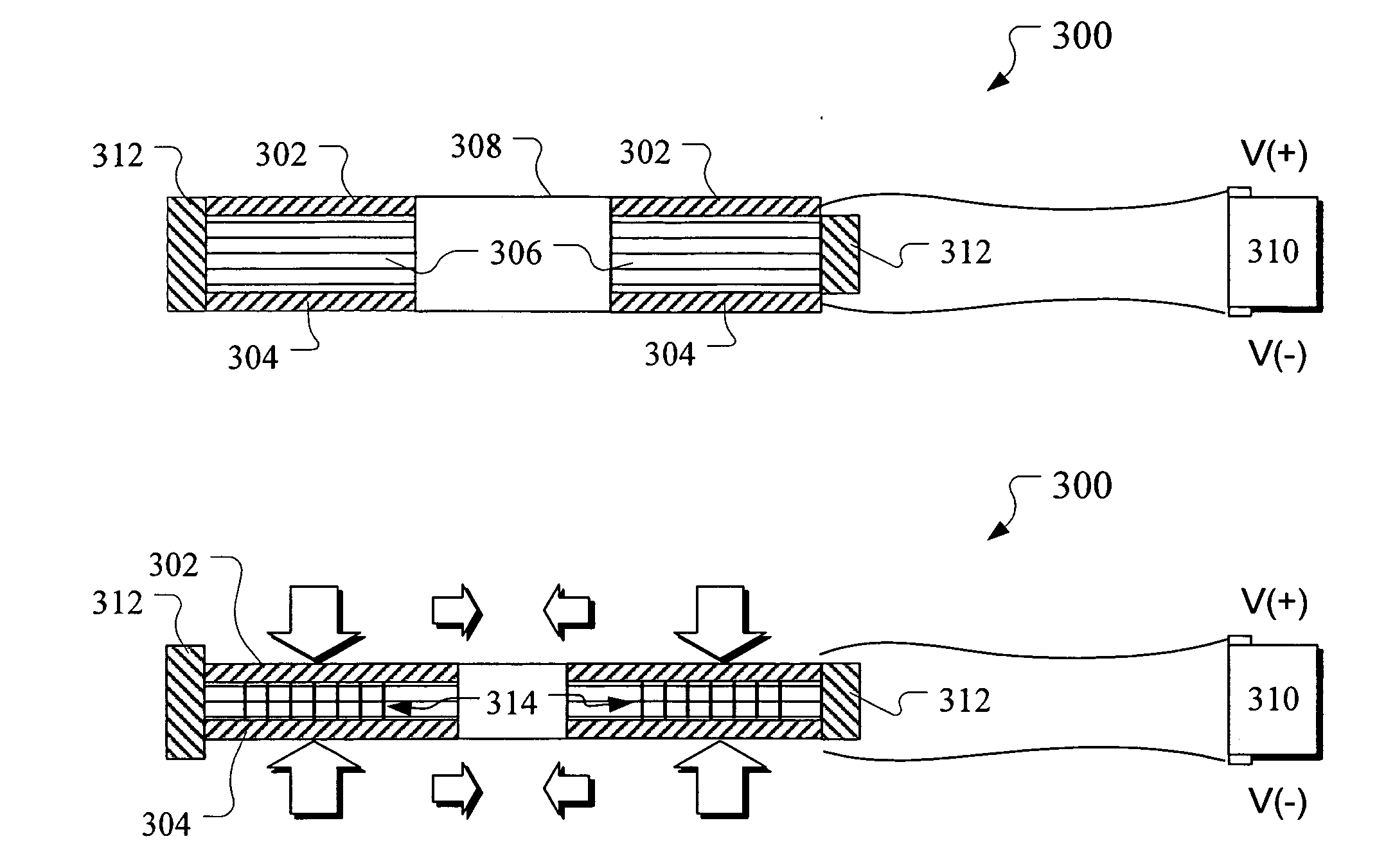Aperture construction for a mobile camera
a mobile camera and aperture technology, applied in the field of digital cameras, can solve the problems of reducing the usability range, affecting the operation of the camera, so as to reduce the complexity and size of the prior art aperture, simplify the manufacturing process, and reduce the risk of breaking or jamming
- Summary
- Abstract
- Description
- Claims
- Application Information
AI Technical Summary
Benefits of technology
Problems solved by technology
Method used
Image
Examples
Embodiment Construction
[0027] FIGS. 1A-B illustrating effects of different aperture sizes (f-number) to the depth-of-field in two exemplary pictures, as well as FIG. 2 illustrating an exemplary exploded view of an implementation for adjustable aperture construction known from the prior art, and FIGS. 2A-D illustrating different aperture sizes achieved by a wing mechanism with the actuator known from the prior art, have already discussed in the connection with the prior art description (background of the invention chapter).
[0028]FIG. 3A illustrates a section view of an aperture construction 300 according to an advantageous embodiment of the present invention, where the aperture construction comprises a positive electrode 302 and negative electrode 304. Between the positive and negative electrodes is placed a center unit 306 with a hole 308 in the middle. The center unit is made of an electroactive material. Moreover the aperture construction comprises also an electrical circuit 310 for applying a voltage ...
PUM
 Login to View More
Login to View More Abstract
Description
Claims
Application Information
 Login to View More
Login to View More - R&D
- Intellectual Property
- Life Sciences
- Materials
- Tech Scout
- Unparalleled Data Quality
- Higher Quality Content
- 60% Fewer Hallucinations
Browse by: Latest US Patents, China's latest patents, Technical Efficacy Thesaurus, Application Domain, Technology Topic, Popular Technical Reports.
© 2025 PatSnap. All rights reserved.Legal|Privacy policy|Modern Slavery Act Transparency Statement|Sitemap|About US| Contact US: help@patsnap.com



